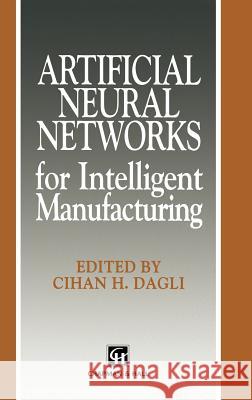Artificial Neural Networks for Intelligent Manufacturing » książka
Artificial Neural Networks for Intelligent Manufacturing
ISBN-13: 9780412480508 / Angielski / Twarda / 1993 / 469 str.
The quest for building systems that can function automatically has attracted a lot of attention over the centuries and created continuous research activities. As users of these systems we have never been satisfied, and demand more from the artifacts that are designed and manufactured. The current trend is to build autonomous systems that can adapt to changes in their environment. While there is a lot to be done before we reach this point, it is not possible to separate manufacturing systems from this trend. The desire to achieve fully automated manufacturing systems is here to stay. Manufacturing systems of the twenty-first century will demand more flexibility in product design, process planning, scheduling and process control. This may well be achieved through integrated software and hardware archi tectures that generate current decisions based on information collected from manufacturing systems environment, and execute these decisions by converting them into signals transferred through communication network. Manufacturing technology has not yet reached this state. However, the urge for achieving this goal is transferred into the term 'Intelligent Systems' that we started to use more in late 1980s. Knowledge-based systems, our first efforts in this endeavor, were not sufficient to generate the 'Intelligence' required - our quest still continues. Artificial neural network technology is becoming an integral part of intelligent manufacturing systems and will have a profound impact on the design of autonomous engineering systems over the next few years."











